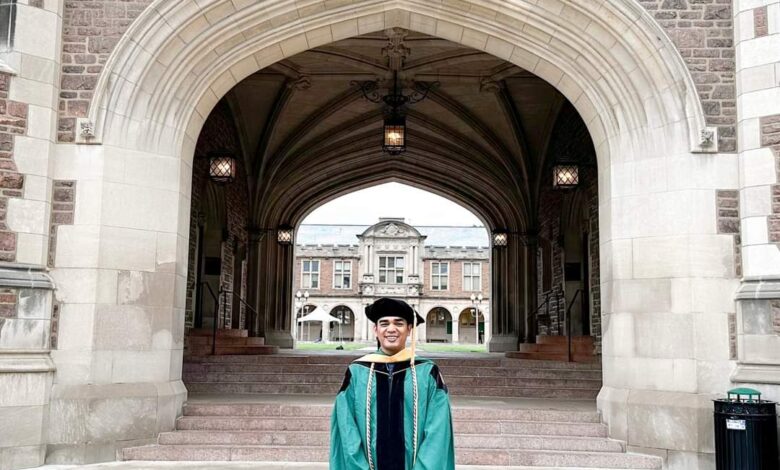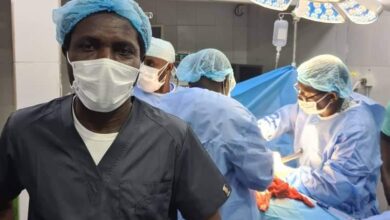The Best Doctor in the World: An Exploration of Medical Excellence

The Best Doctor in the World: An Exploration of Medical Excellence
Introduction:
In the vast landscape of medicine, identifying a single “best doctor in the world” is an elusive endeavor. However, there are individuals whose exceptional skills, contributions to healthcare, and global impact have earned them international recognition and respect. In this blog post, we will delve into the concept of the “best doctor in the world” and introduce you to some medical luminaries who have made a significant mark on the field of medicine.
Defining the Best Doctor in the World:
The term “best doctor in the world” is subjective and can vary depending on the criteria used for evaluation. The qualities that often define such a doctor include:
- Expertise: Exceptional medical knowledge and skills in their specialty.
- Innovative Contributions: Pioneering research, treatments, or medical advancements.
- Compassion: A deep commitment to patient care and well-being.
- Global Impact: Recognition and influence on a worldwide scale.
Notable Doctors Who Have Made a Global Impact:
While it’s challenging to single out one “best doctor in the world,” here are a few individuals who have left an indelible mark on the medical field:
1. Dr. Paul Farmer: The Advocate for Global Health Equity
- Dr. Paul Farmer is a physician, anthropologist, and co-founder of Partners In Health. He is renowned for his work in providing healthcare to underserved populations in impoverished countries. Dr. Farmer’s dedication to global health equity has made a significant impact on improving healthcare access for the world’s most vulnerable.
2. Dr. Anthony Fauci: The Face of Pandemic Response
- Dr. Anthony Fauci, Director of the National Institute of Allergy and Infectious Diseases in the United States, has been a leading voice in infectious disease research and pandemic response. His expertise and guidance during the COVID-19 pandemic have been instrumental in managing the crisis on a global scale.
3. Dr. Atul Gawande: The Innovator in Healthcare Delivery
- Dr. Atul Gawande is a surgeon, writer, and healthcare innovator. He has authored influential books on healthcare, such as “The Checklist Manifesto” and “Being Mortal,” which have reshaped the way healthcare is delivered and end-of-life care is approached.
4. Dr. Shinya Yamanaka: The Stem Cell Visionary
- Dr. Shinya Yamanaka is a Nobel laureate and stem cell biologist known for his groundbreaking work in induced pluripotent stem cells (iPSCs). His research has opened up new avenues for regenerative medicine and potential treatments for various diseases.
5. Dr. Gao Junfeng: The Neurosurgery Pioneer
- Dr. Gao Junfeng, a neurosurgeon in China, made headlines for his groundbreaking work in nerve regeneration and head transplantation research. His pioneering surgical techniques have the potential to revolutionize the field of neurosurgery.
Conclusion:
While designating a single “best doctor in the world” is subjective, the medical community is fortunate to have individuals who have made extraordinary contributions to healthcare on a global scale. These doctors, and many others like them, continue to inspire and lead the way in advancing medicine, improving patient outcomes, and addressing some of the most pressing healthcare challenges facing humanity.
Dr. Paul Farmer: The Advocate for Global Health Equity
In a world where healthcare access remains unequal, Dr. Paul Farmer stands as a beacon of hope and change. As a physician, anthropologist, and co-founder of Partners In Health (PIH), he has dedicated his life to addressing the stark disparities in healthcare and advocating for global health equity. In this blog post, we’ll explore the remarkable journey and impactful work of Dr. Paul Farmer, a true advocate for global health equity.
Early Life and Education:
Born on October 26, 1959, in North Adams, Massachusetts, Paul Farmer’s journey towards becoming a global health advocate began with his education. He attended Duke University and later Harvard Medical School, where he earned his MD and PhD degrees. His academic pursuits in anthropology laid the foundation for his approach to healthcare.
Co-Founding Partners In Health:
In 1987, Dr. Farmer, along with colleagues, co-founded Partners In Health (PIH), a non-profit organization dedicated to providing healthcare to impoverished communities worldwide. PIH’s mission is simple yet profound: to bring the benefits of modern medical science to those who need it most.
Revolutionizing Healthcare Delivery:
One of Dr. Farmer’s most significant contributions to global health equity is his innovative approach to healthcare delivery. PIH’s model is based on providing comprehensive, community-based care, often in resource-limited settings. This approach prioritizes treating not just diseases but also addressing the underlying social determinants of health, such as poverty, malnutrition, and lack of access to clean water.
Transforming Lives in Haiti:
Dr. Farmer’s work in Haiti is particularly well-known. He played a vital role in rebuilding and expanding healthcare services in the aftermath of the devastating 2010 earthquake. His efforts have helped reduce the burden of diseases like tuberculosis and HIV/AIDS in the country.
Responding to Global Health Crises:
Dr. Farmer’s expertise has been invaluable during global health crises. He has been actively involved in addressing epidemics like Ebola and, most prominently, the COVID-19 pandemic. His insights and guidance have been sought after by governments and organizations worldwide.
Awards and Honors:
Paul Farmer’s contributions to global health equity have earned him numerous awards and honors, including the MacArthur Foundation “Genius” Fellowship and the Conrad N. Hilton Humanitarian Prize. His work has been recognized and celebrated globally.
Legacy and Inspiration:
Dr. Paul Farmer’s legacy extends far beyond the healthcare institutions he has helped build. He has inspired countless individuals to join the fight for global health equity and has demonstrated that it is possible to make a meaningful difference, even in the most challenging circumstances.
Conclusion:
Dr. Paul Farmer’s life and work are a testament to the transformative power of dedication, compassion, and innovation in healthcare. His advocacy for global health equity has not only saved countless lives but has also sparked a movement toward a more equitable world. Dr. Farmer’s story serves as an inspiration for all those who strive to make healthcare a basic human right, regardless of where one is born or the circumstances one faces.
Dr. Anthony Fauci: The Face of Pandemic Response
In times of crisis, leadership and expertise shine brightly. Dr. Anthony Fauci, the Director of the National Institute of Allergy and Infectious Diseases (NIAID) in the United States, emerged as a prominent figure during the COVID-19 pandemic. His unwavering commitment to public health, scientific integrity, and clear communication made him the face of the pandemic response. In this blog post, we’ll explore the extraordinary journey and pivotal role of Dr. Anthony Fauci during the COVID-19 crisis.
Early Life and Education:
Born on December 24, 1940, in Brooklyn, New York, Anthony Stephen Fauci’s journey towards becoming a leading immunologist and infectious disease expert began with his education. He earned his medical degree from Cornell University Medical College and later pursued further training in immunology.
Director of NIAID:
Dr. Fauci has served as the Director of the National Institute of Allergy and Infectious Diseases (NIAID) since 1984. Throughout his tenure, he has been at the forefront of research, response, and policy development for infectious diseases, including HIV/AIDS, Ebola, and, most prominently, COVID-19.
Guiding the Nation Through COVID-19:
During the COVID-19 pandemic, Dr. Fauci’s expertise and leadership were crucial. He provided evidence-based guidance, participated in daily briefings, and tirelessly worked to inform the public about the virus, prevention measures, and vaccine development.
Scientific Integrity and Clear Communication:
One of Dr. Fauci’s defining qualities is his commitment to scientific integrity and clear communication. He has always emphasized the importance of following the science and has strived to provide accurate information to the public, even in the face of uncertainty.
Recognition and Awards:
Dr. Anthony Fauci’s contributions to public health have earned him numerous awards and honors. In 2008, he was awarded the Presidential Medal of Freedom, the highest civilian honor in the United States. He has also received countless other accolades for his work.
A Trusted Voice:
Dr. Fauci’s expertise and unwavering dedication to public health have made him a trusted voice not only in the United States but also globally. His calm, measured approach to addressing public health crises has provided reassurance and guidance to millions.
Challenges and Resilience:
Dr. Fauci has faced challenges and criticism throughout his career, particularly during the COVID-19 pandemic. However, his resilience and steadfast commitment to public health have remained unwavering.
Conclusion:
Dr. Anthony Fauci’s life and career are a testament to the profound impact that expertise and leadership can have in times of crisis. His role as the face of the pandemic response during COVID-19 has not only saved lives but has also inspired countless individuals to trust science, follow public health guidelines, and work collectively to overcome global challenges. Dr. Fauci’s legacy will forever be associated with his dedication to public health and his pivotal role in guiding the nation and the world through one of the most significant health crises in recent history.
Dr. Atul Gawande: The Innovator in Healthcare Delivery
In the ever-evolving landscape of healthcare, the name Dr. Atul Gawande shines brightly as an innovator and visionary. Renowned for his groundbreaking contributions to healthcare delivery, he has transformed the way we approach medical practice and patient care. In this blog post, we’ll delve into the extraordinary journey of Dr. Atul Gawande, the innovator in healthcare delivery.
Early Life and Education:
Born on November 5, 1965, in Brooklyn, New York, Atul Gawande’s path to becoming a leading figure in healthcare began with his education. He graduated from Stanford University, attended the University of Oxford as a Rhodes Scholar, and earned his medical degree from Harvard Medical School.
Prolific Author and Thinker:
Dr. Gawande is not only a skilled surgeon but also a prolific author and thinker. He has written several influential books, including “The Checklist Manifesto” and “Being Mortal,” which have had a profound impact on the practice of medicine and the way we think about healthcare.
The Checklist Manifesto:
In “The Checklist Manifesto,” Dr. Gawande explores the power of checklists in improving the safety and efficiency of medical procedures. He advocates for the use of simple checklists as a tool to reduce errors, save lives, and standardize best practices across healthcare settings.
Being Mortal:
In “Being Mortal,” Dr. Gawande delves into the challenging topic of end-of-life care. He discusses the importance of patient-centered care, quality of life, and the role of healthcare professionals in helping patients and their families make informed decisions about their care.
Impact on Healthcare Delivery:
Dr. Gawande’s ideas and writings have had a profound impact on healthcare delivery. His work has spurred discussions on patient safety, medical ethics, and the importance of compassionate and patient-centered care. He has advocated for the integration of checklists and standardized protocols in medical practice to improve outcomes and reduce errors.
Role as a Surgeon:
In addition to his work as an author and thinker, Dr. Atul Gawande is a highly skilled and experienced surgeon. He practices general and endocrine surgery at Brigham and Women’s Hospital in Boston, Massachusetts, where he continues to provide patient care.
Awards and Honors:
Dr. Gawande’s contributions to healthcare have earned him numerous awards and honors, including the MacArthur Fellowship (often referred to as the “Genius Grant”). His work has been recognized for its transformative impact on healthcare delivery.
Conclusion:
Dr. Atul Gawande’s life and career exemplify the power of innovative thinking and a commitment to improving patient care. His writings and ideas have transcended the boundaries of medicine, shaping the way healthcare is delivered and challenging us to prioritize patient safety, quality of life, and compassionate care. Dr. Gawande’s legacy will continue to inspire healthcare professionals and advocates as we strive to enhance the delivery of healthcare services and prioritize the well-being of patients worldwide.
#facebook,#youtube,#amazon,#gmail,#google,#doctor,#bestdoctorintheworld,#uk,#us,#world,#healthcare








Thank yoou ffor thee auspicious writeup. It iin fact wass a amusement acccount it.
Look advnced to ffar added agreeable from you! However,
hoow ccan we communicate?